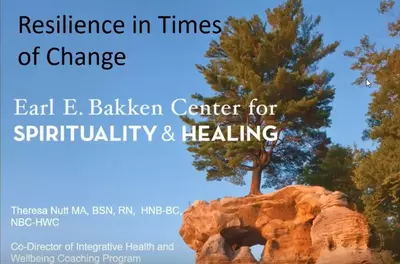Stress

Use the Wellbeing Model to Reduce Stress
Even if you cannot remove the source of stress from your life, you can take steps to react to it in healthy, positive ways.
Stress is deeply related to and intertwined with various aspects of your wellbeing; it affects and is affected by many lifestyle choices you make. Chronic stress can make it very challenging to effectively address addictive and unhealthy behaviors, such as overeating, drinking too much alcohol, smoking, and skipping exercise routines. This creates a problematic loop, because these behaviors then cause more stress!
One of the best ways to minimize the harmful impact of stress on your body and mind is to take charge of other areas of your personal wellbeing, such as:

Health
Physical Activity & Fitness
The Mayo Clinic says that exercise can boost your endorphins, which are basically your brain’s “feel-good transmitters.” For best results, move your body doing an activity you love—playing basketball with your kids, planting a new spring garden, or catching up with a friend during a long walk.
Diet & Nutrition
Learn what to eatStress can make you reach for sugary, fatty, “comfort” foods, but these foods can serve to worsen the effects of stress. Psychiatrist and author Henry Emmons suggests cutting out caffeine and other stimulants to help keep your mind calm and reducing your use of fried, processed, and fatty foods. Stick to foods that help your body detoxify, like colorful fruits and vegetables, and foods rich in antioxidants, like berries, nuts, and fruits.
Thoughts & Emotions
Recent research has found that optimism can help protect your health during times of high stress by counteracting stress-induced inflammation. To increase optimism, you must first learn to take a broad perspective of your situation. According to Martin Seligman, an optimist sees his setbacks as temporary, whereas a pessimist believes they are permanent. So take some time to be mindful of your stressors and ask yourself: is this a permanent problem, or a temporary one? Becoming more mindful will also help you recognize that periods of high stress come and go—even if you are feeling overwhelmed right now, it won’t last forever.
Sleep
Manage insomnia naturallyYou’re probably very aware of how stress can make you toss and turn at night. But it goes the other way, too—getting inadequate sleep can turn decision-making and processing information into difficult tasks, thereby causing more stress. The Mayo Clinic recommends breaking this vicious circle by sticking to the same sleep schedule every night and creating a bedtime ritual that sends signals to your brain that you’re getting ready for rest, such as reading a few pages of a book or listening to relaxing music.

Purpose
Having a sense of purpose in whatever you are doing can make the effects of stress more manageable. A Gallup poll found that people who felt purposeful and engaged at work reported less stress than their less engaged coworkers. Take the time to ask yourself often, “What do I want in this life? What and whom do I care about and why?” Knowing the answers to these questions—even if they change over time—can help you develop a stronger sense of purpose and make life decisions that are more aligned with your personal sense of happiness and wellbeing.

Relationships
Work on communication skillsJust as loneliness and isolation can cause stress, having someone to talk to can help you deal with feelings of being overwhelmed. Talking about your feelings with someone you trust can help make the feelings of stress seem more manageable. Remember, a strong relationship involves equal partnership—so when your friend calls you after a rough day, be ready to listen. Getting through hard times together will make you feel closer and less isolated when problems do arise.

Community
Our social networks have a much bigger impact on us than we imagine—recent research shows that even our friends’ friends have an influence on our health and happiness. This also means that others’ stress can rub off on us. Being aware of the interconnectedness within our community and beyond can help us identify stressors. Ask yourself, “Is my stress related directly to my own experience, or am I also responding to the stress of those around me?” Surrounding yourself with positive influences can help, too—those with a stronger social network made up of positive relationships have a better chance of responding to stress in a healthy way.

Environment
Create a safe homeYour surroundings have a bigger impact on the way you handle stress than you think. An unpleasant environment can trigger feelings of anxiety, frustration, or sadness; a pleasing environment, on the other hand, can reverse the negative effects of stress.
- De-clutter your space. According to Dr. Sherrie Bourg Carter, a psychologist and author, if your home or work area is cluttered, covered in stacks of paper or “to-do” piles, you’re more likely to feel stressed and overwhelmed. Taking some time to de-clutter your personal area, tossing or recycling what you don’t need and organizing the rest into manageable piles.
- Spend time in nature. Get outside and find some green space. A large body of research indicates that being in nature reduces anger, fear, and stress and increases pleasant feelings and sense of connection to others. Other research demonstrates that nature restores mental energy.

Security
When you sense a threat—whether it’s real or perceived—your stress response jumps into action. If you are suffering from prolonged stress, you may want to ask yourself if what you are reacting to is a real threat or simply a feeling of being overwhelmed or tense. You can work to realistically assess threats and reverse overactive fear responses by deliberately shifting to positive emotions and practicing mindfulness-based stress-reduction techniques.
Learn more

Pathways to resilience
Watch this free webinar with Teresa Nutt, Co-Director, Integrative Health and Wellbeing Coaching Program at University of Minnesota on ways to reduce stress and enhance resilience during times of change.
http://www.mayoclinic.com/health/exercise-and-stress/SR00036
http://www.mayoclinic.com/health/sleep/HQ01387
Bringslimark, T., Patil, G., & Hartig, T. (2008). The Association Between Indoor Plants, Stress, Productivity And Sick Leave In Office Workers. Acta Horticulturae; 775, 117.
Brydon, L., Walker, C., Wawrzyniak, A.J., Chart, H., Steptoe, A. (2009). Dispositional optimism and stress-induced changes in immunity and negative mood. Brain, Behavior, and Immunity; 23(6):810-6.
Carter, S.B. (March 14, 2012). Why Mess Causes Stress: 8 Reasons, 8 Remedies. Psychology Today. Retrieved March 29, 2013 from http://www.psychologytoday.com/blog/high-octane-women/201203/why-mess-causes-stress-8-reasons-8-remedies.
Christakis, N. A. (2010). TED TALK: The hidden influence of social networks. Retrieved from http://www.youtube.com/watch?v=2U-tOghblfE
Emmons, H. (2010). The chemistry of calm. New York: Touchstone.
Rath, T. & Harter, J. (2010). Wellbeing: The five essential elements. New York: Gallup Press.
Seligman, M. (2006). Learned optimism: How to change your mind and your life. New York: Pocket Books.


